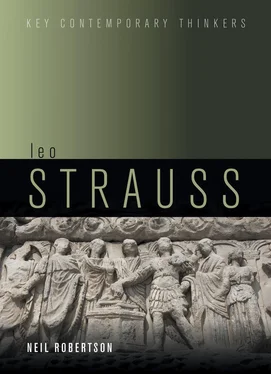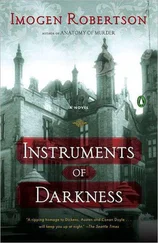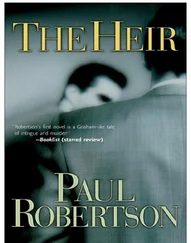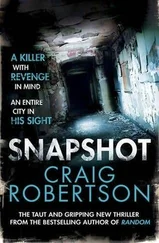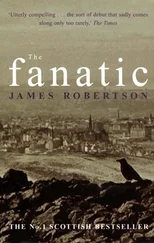For further information on Polity, visit our website: politybooks.com
In memory of my parents, Ronald and Sheila Robertson for their sustaining love and understated wisdom
This book is a culmination of the fascination with and critical admiration for the thought of Leo Strauss that I have had since first encountering him when I was an undergraduate, through the teaching of George Grant and of Robert Eden when both were at Dalhousie University. I have thought and taught and written about Leo Strauss for nearly forty years. I am so grateful for the teachers, colleagues, and students who have supported in so many ways my effort to understand this most evasive of thinkers. I must especially acknowledge two intersecting intellectual centers: the University of King’s College and the Classics Department of Dalhousie University, together so fundamental to my intellectual formation, and the home for my thinking about Strauss.
There are specific colleagues and friends who have contributed directly to this book’s composition by reading drafts of chapters and aiding and correcting my thinking and understanding of Strauss: Daniel Brandes, Eli Diamond, Susan Dodd, Mark Henrie, Ken Kierans, Simon Kow, David Peddle, and Henry Roper. I am also very much in the debt of the anonymous reviewers who gave such helpful corrections and suggestions to aid in the final reworking of the book. I am deeply grateful to George Owers and Julia Davies of Polity Press for the invitation to write this book and the care and consideration they have shown both it and me over its somewhat delayed emergence.
This book was made possible by six months’ leave of absence from my work as Director of the Foundation Year Program at the University of King’s College in Halifax, Nova Scotia. For the astonishing generosity of my colleagues, above all Susan Dodd who stepped in so graciously to take over my duties, I am deeply thankful: it is the most perfect affirmation of the collegiality in our little institution and in the program that is its heart. I am grateful as well to our President and Vice-President, and to the Board of Governors, for granting me this unplanned leave. The support of the University of King’s College Library has also been an enormous help in the writing of this book.
However, the person who must be acknowledged beyond all others is my wife and the endlessly patient yet challenging editor of all the writing of this book. Whatever clarity, articulacy, or poise belongs to it is entirely due to her extraordinary care, skill, and talent with language. She has been aided in supporting me through this consuming task by my two wondrous daughters.
Neil G. Robertson
March 2021
It is true of many important contemporary thinkers that they are controversial: often, what makes thinkers important is precisely that they say controversial things. What is especially challenging about Leo Strauss, however, is that the controversy surrounding him is often about what his position actually was. In both the secondary literature and the popular press, there is basic disagreement about what Strauss was in fact arguing.
Trying to provide an introduction to the thought and writings of Leo Strauss, then, is necessarily problematic. This is not an accident. The fact that commentators do not agree about what Strauss himself argued is itself a clue to what is most important in Leo Strauss. The most basic awareness a philosopher must have, according to Strauss, is the recognition of what he calls “the fundamental or permanent problems.” At the very center of his life and thought, Strauss is calling upon us to recognize the deeply problematic character of human existence. It is entirely fitting that Strauss’s thought should be inherently problematic.
But none of this makes the work of providing an introduction to that thought any easier. Strauss has generated dramatically varying interpretations. For his students and other admirers, sometimes called “Straussians,” Leo Strauss is among the most significant scholars or philosophers of the twentieth century – in fact, perhaps the most important. For these, he is a figure who has revived political philosophy and classical thought, rediscovered old and hidden ways of reading, and made the very beginnings of Socratic political philosophy available to us once more. He has diagnosed with unsurpassed clarity the “crisis of our time,” and yet has also recovered the nobility and validity of revelation and renewed the debate between Athens and Jerusalem. In so doing, this Strauss has helped free his readers and students from false and destructive ideological thinking or naive ambitions about the transforming possibilities of politics, and so has recovered political moderation and the need for statesmanlike prudence and restraint in our all-too-dogmatic political world. This Leo Strauss is a wise and sober friend to liberal democracy, and especially to American liberal democracy.
On the other side, Strauss has been greeted by his critics – of whom there are many – as the very opposite of that in almost every respect, often in strangely contrasting ways. On the one hand he has been portrayed as essentially an intellectual fraud, lacking in basic scholarship, or pursuing a scholarship that is perverse beyond the idiosyncratic: more a cult leader than a diligent scholar. Whatever claims he may have to philosophical insight are, from this perspective, entirely overblown: where he is not derivative, he is delusional. At the same time, other critics have portrayed Strauss as not so much an incompetent crank, more a kind of intellectual Moriarty, a spider weaving an insidious and hidden web that seeks to undermine liberal democracy. This Strauss seeks to effect a politics of lying and manipulation informed by the thought of Nietzsche or even by a kind of fascism. In this view, Strauss’s all-too-superior “philosophers” are supposed to rule over all-too-human subjects. For critics in this camp, the role of Strauss’s students in the “American right” (and above all the neo-conservatives who came to power in the White House of George W. Bush) reveals the inner truth of what Strauss has really been about behind the veil of traditional conservatism. For these critics, he is a false friend to liberal democracy, and his influence has been a disaster for American and global political life.
So, for the reader who seeks to be both critical and sympathetic and to find a middle road between the Straussians and the anti-Straussians, this leaves the question: who is Leo Strauss, and in what context are we to understand his writings?
Ironically, one of the challenges in answering this is that, in contrast to many contemporary thinkers, Strauss appears to write simply and straightforwardly. He largely shuns technical language, finding it abstract and unphilosophical – and so, at the level of sentences or even paragraphs, his writing can appear to need no introduction. The last few books he wrote may seem to be nothing more than uninspiring summaries of the texts on which they claim to be commentaries. It is certainly true that, when Strauss wants to, he can write with great clarity and beauty. The challenge in reading him is to keep track of the subtle and continual shifts and changes that come to light as he moves from one thought to the next. Things quickly become complicated as we start trying to put together the various things Strauss says.
Three further things in Strauss’s writing lead to even greater complexity. First, as we have already remarked, at the heart of his thinking Strauss emphasizes the irresolvable, problematic character of existence. This means that tensions and oppositions are themselves essential to Strauss’s thought. Even among his students there is wide disagreement about how Strauss resolves, characterizes, or even formulates these tensions. For example, the contrast or tension between reason and revelation is fundamental to Strauss’s thought, but Strauss’s readers differ in what they see him doing with the reason–revelation “problem.” There are atheistic, secularist Straussians and there are faith-based Straussians: both groups find a ground for their position in Strauss’s writings. Another example of this fundamental disagreement is Strauss’s assessment of the importance of ordinary civic or political morality. Some take Strauss to be a firm defender of such morals; others take the opposite view, that Strauss is in fact contemptuous of ordinary moral understanding. In general, I will not try to resolve these debates, but will suggest a formulation that seems best to cohere with what seem to be Strauss’s other thoughts. Staying with the problems more than any solution was in fact a central characteristic Strauss himself discerned in philosophy, which he saw to be the love or pursuit, rather than the actual possession, of wisdom.
Читать дальше
